What happens after 'I Love You' in movies?
I analysed 72,000 movies to find out how often characters say "I love you" and what happens next. The results reveal how films express love, when they say it, and how characters respond.
A few weeks ago, I shared research showing that romance is increasingly absent from cinema screens. This tracked the genre of movies and the types of narratives that movies are using.
This led to a few readers getting in touch to suggest additional ways of looking at the question of whether cinema is becoming less romantic.
One of the suggestions was to track uses of the phrase ‘I love You’.
So I set to it, using my database of subtitles from 72,405 fiction feature films made over the past century. I found all the mentioned of the phrase "I love you", and analysed how often it appeared, where in the film it was spoken and what happened immediately after characters declared their love.
How common is "I love you" in movies?
Interestingly, just over half of all movies never feature the phrase "I love you" at all.
Of those that do, most use it sparingly. 17.2% use the phrase exactly once, with rapidly diminishing numbers as repetition increases. The vast majority of films featuring the phrase say it fewer than five times.
The movie which mentioned the phrase most often was a rather obscure French-Italian film from 1986 titled, perhaps predictably, "I Love You". It contains the phrase an impressive 74 times, delivered mostly by a bobble-head doll.
Yes, you read that right.
The film follows Michel, a lonely thrill-seeker who becomes obsessively infatuated with a talking doll shaped like a woman, whose sole dialogue is the repeated declaration of love. Watch the trailer at your own discomfort.
How the use of "I love you" has changed over time
The data reveals shifting attitudes towards saying "I love you" in movies over the decades.
The phrase was relatively popular until the 1960s, after which its use gradually dipped. A resurgence occurred in the 1980s and 1990s before another decline in the early 2000s.
However, since around 2014, "I love you" has been steadily returning to scripts, reaching a point today where half of all movies now include the phrase, a notable increase from previous decades.
This recent rise is particularly interesting given the simultaneous broader retreat from romance as a key genre or plot device, which my previous research highlighted.
Genre differences in saying "I love you"
Unsurprisingly, movies explicitly classified as Romance films most commonly feature the phrase, with 57% of them including it at least once.
Music and Comedy genres also regularly use the phrase, appearing in just over half of such films. Conversely, Westerns, History, and War films are the least likely genres to verbalise love directly, with fewer than a third including "I love you".
When movies say "I love you"
Filmmakers clearly prefer to reserve declarations of love for emotionally climactic moments towards the end of their stories.
"I love you" rarely appears at the start of films, with occurrences steadily increasing as films progress. Nearly a quarter of all declarations of love appear in the final 15% of films, strongly suggesting an essential payoff or emotional resolution.
How do characters respond to "I love you"?
Just as interesting as how frequently love is declared is how other characters respond to hearing "I love you".
I categorised responses as acceptance, deflection or ignoring, comedic reaction, or outright rejection. Over recent decades, there's been a slow but noticeable increase in acceptance and a corresponding decrease in deflection or ignoring.
This response also changes as films approach their end.
Early in a film, characters hearing "I love you" are more likely to deflect or ignore the sentiment. Acceptance steadily rises as the film progresses, finally overtaking deflection in the film’s final moments.
Interestingly, comedic responses remain relatively steady throughout, while outright rejections peak around two-thirds of the way into the narrative, sharply declining towards the conclusion.
BONUS TOPIC - “I love your [x]!”
One final detail I looked at was how often characters say "I love your [something]" rather than simply "I love you".
The most common words completing this phrase were "hair" and "work", with each appearing in nearly 4% of instances. Family members also featured frequently, with "daughter", "mother", "sister", and "father" all making the list.
Compliments on appearance such as "dress", "eyes", and "smile" were also common, though interestingly, "voice" was among the less frequent choices.
Notes
For this analysis, I looked at the English-language subtitle files for 72,405 fiction feature films (released between 1911 and 2022) kindly provided by the lovely folk at OpenSubtitles.com. Metadata came from OMDb, IMDb, The Numbers, Wikipedia, and my own analysis.



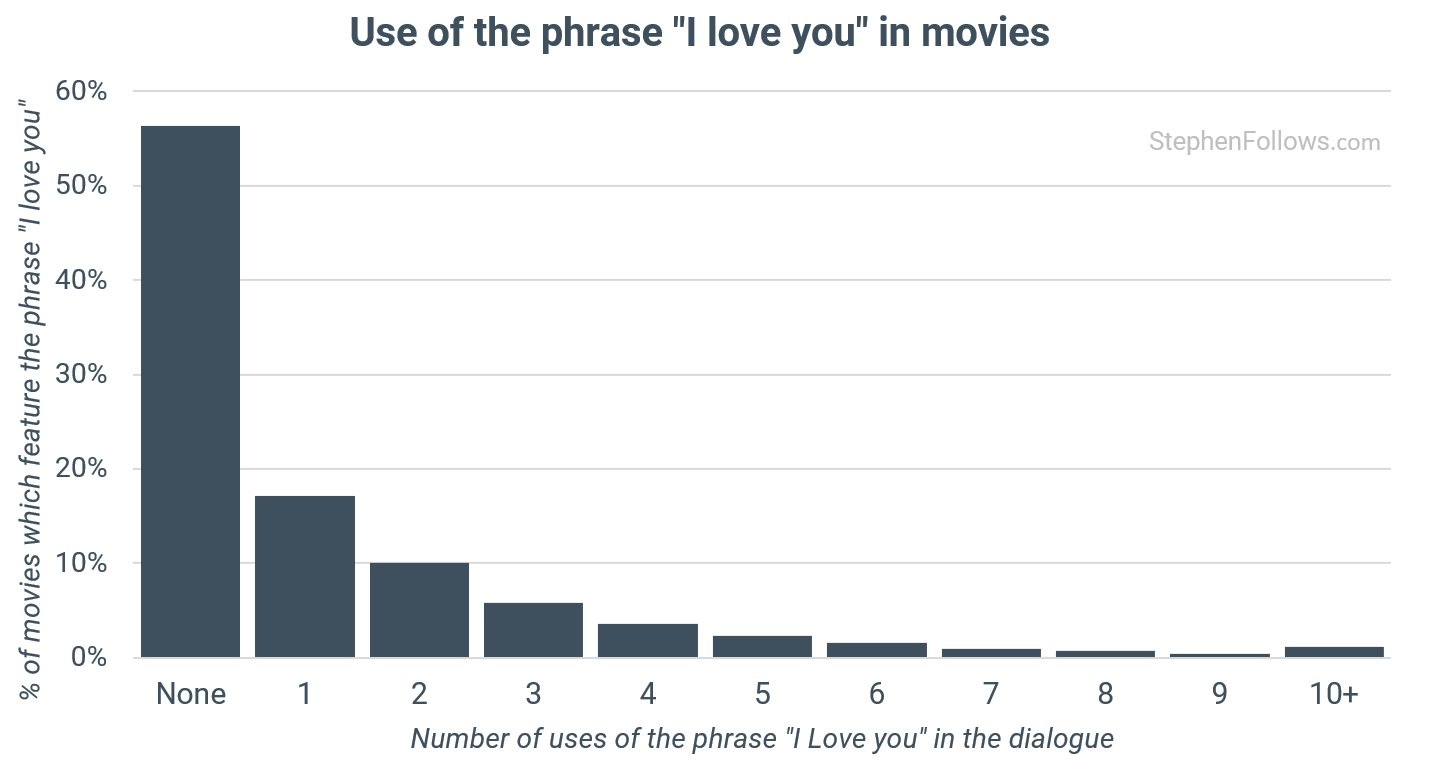
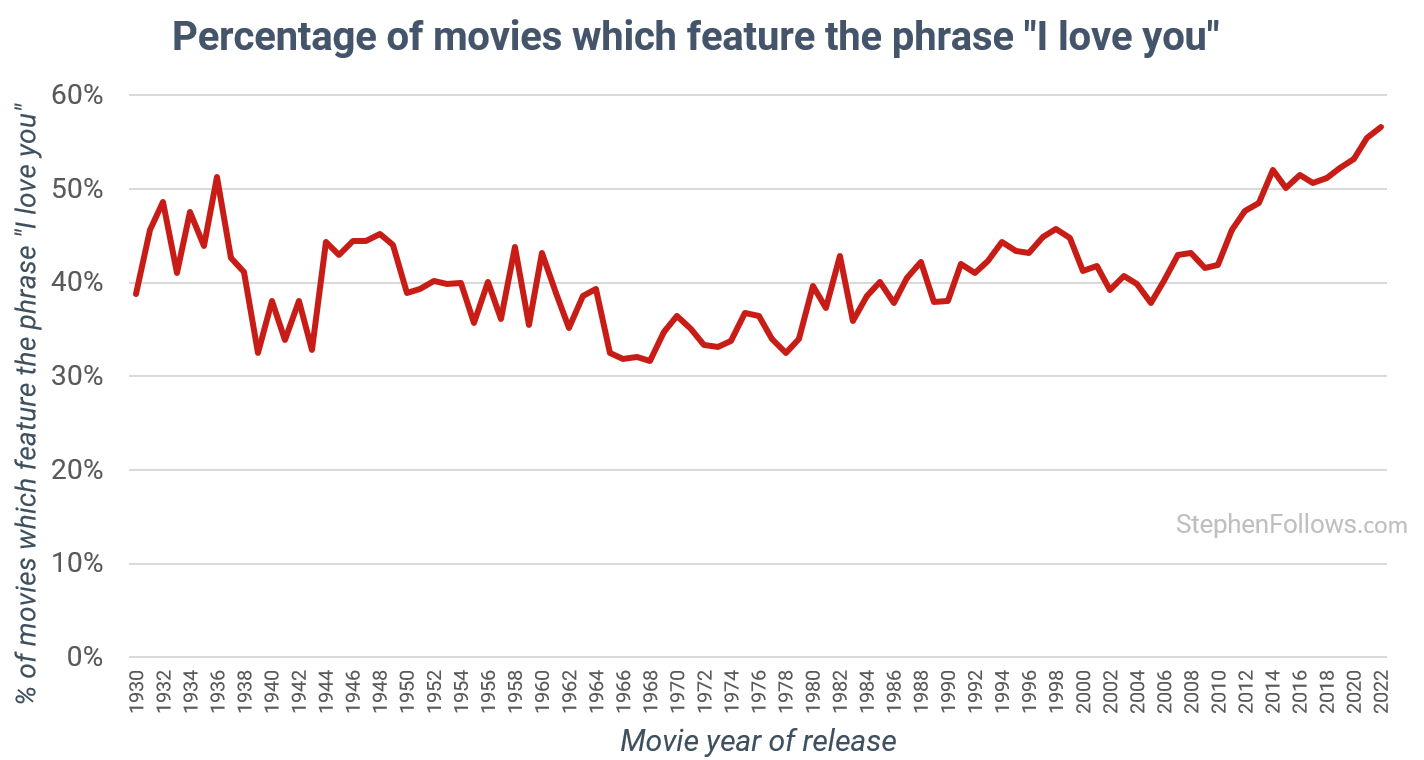
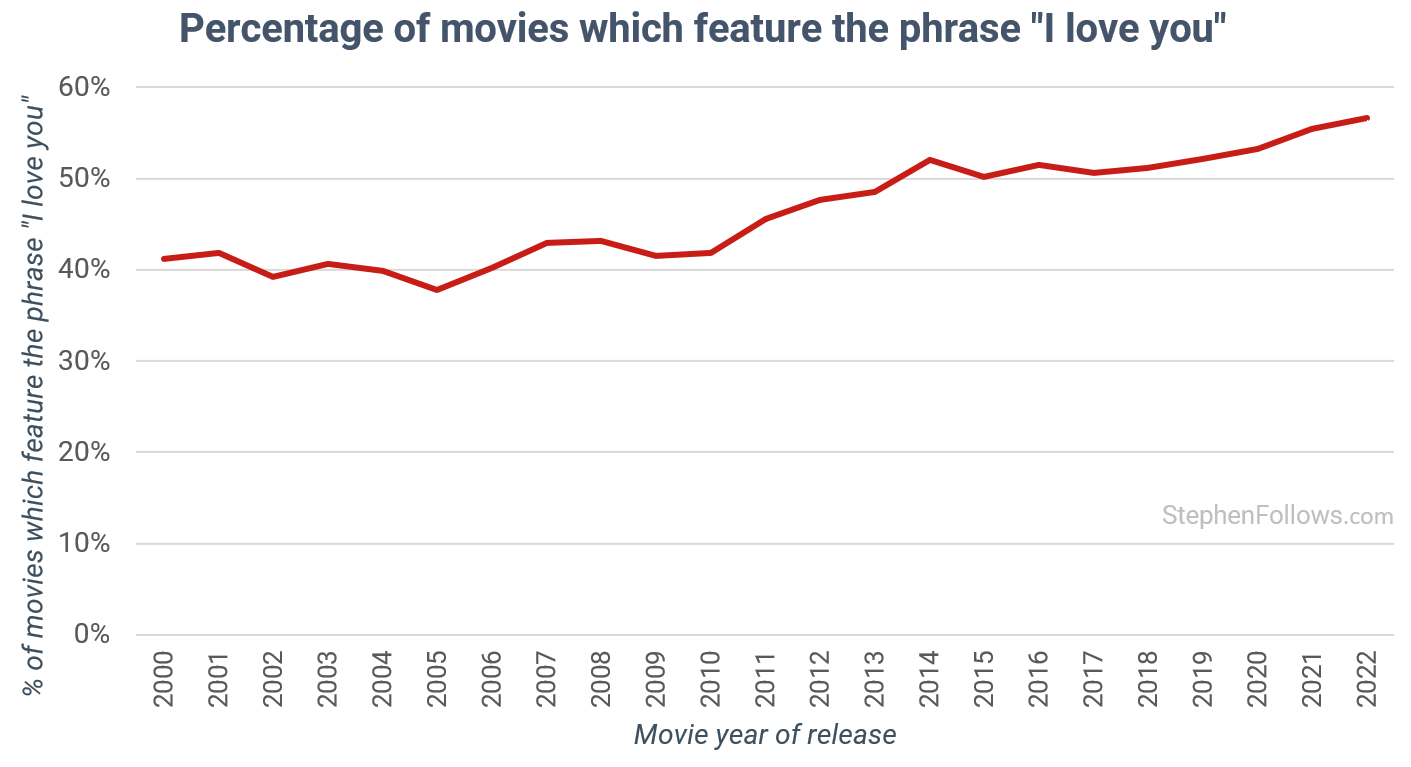
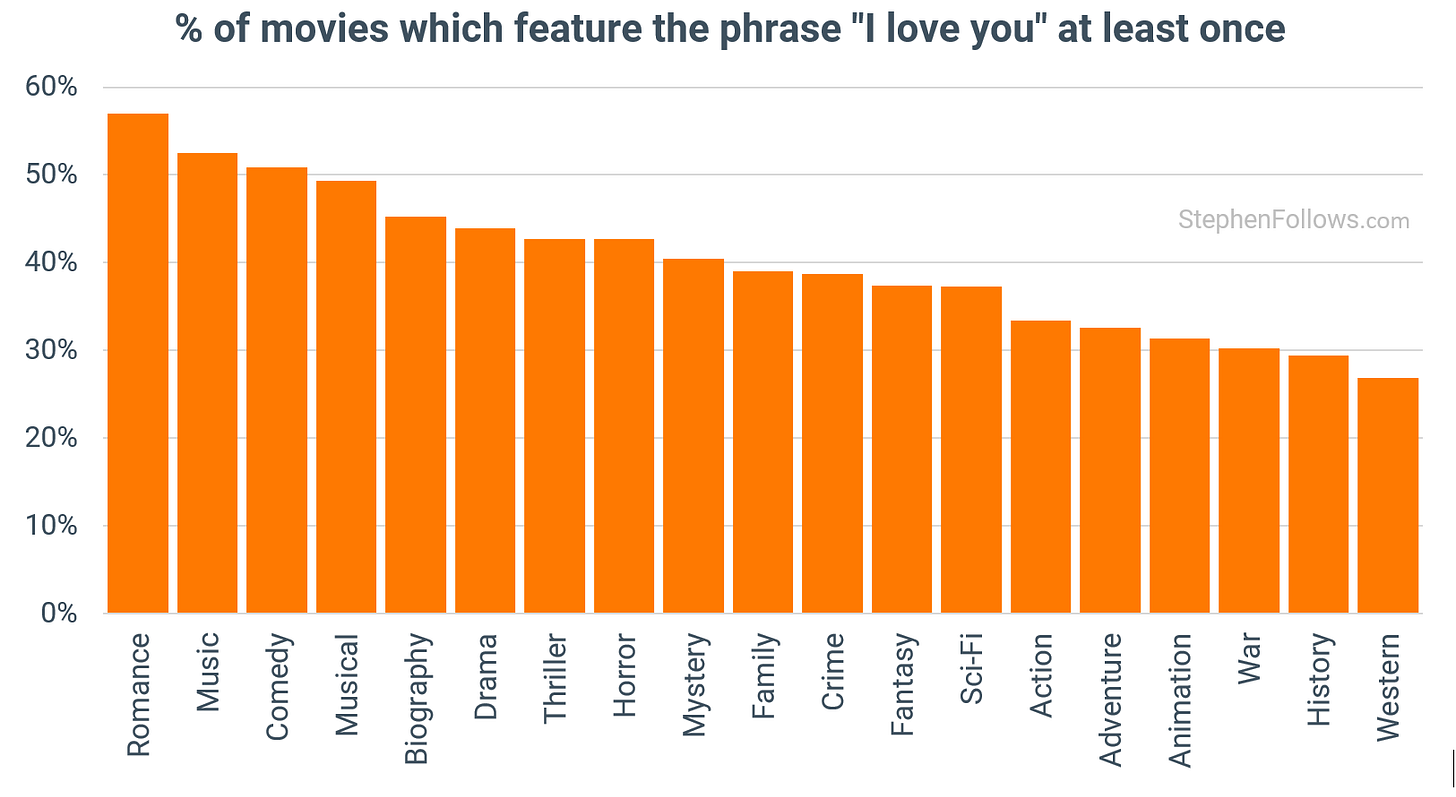
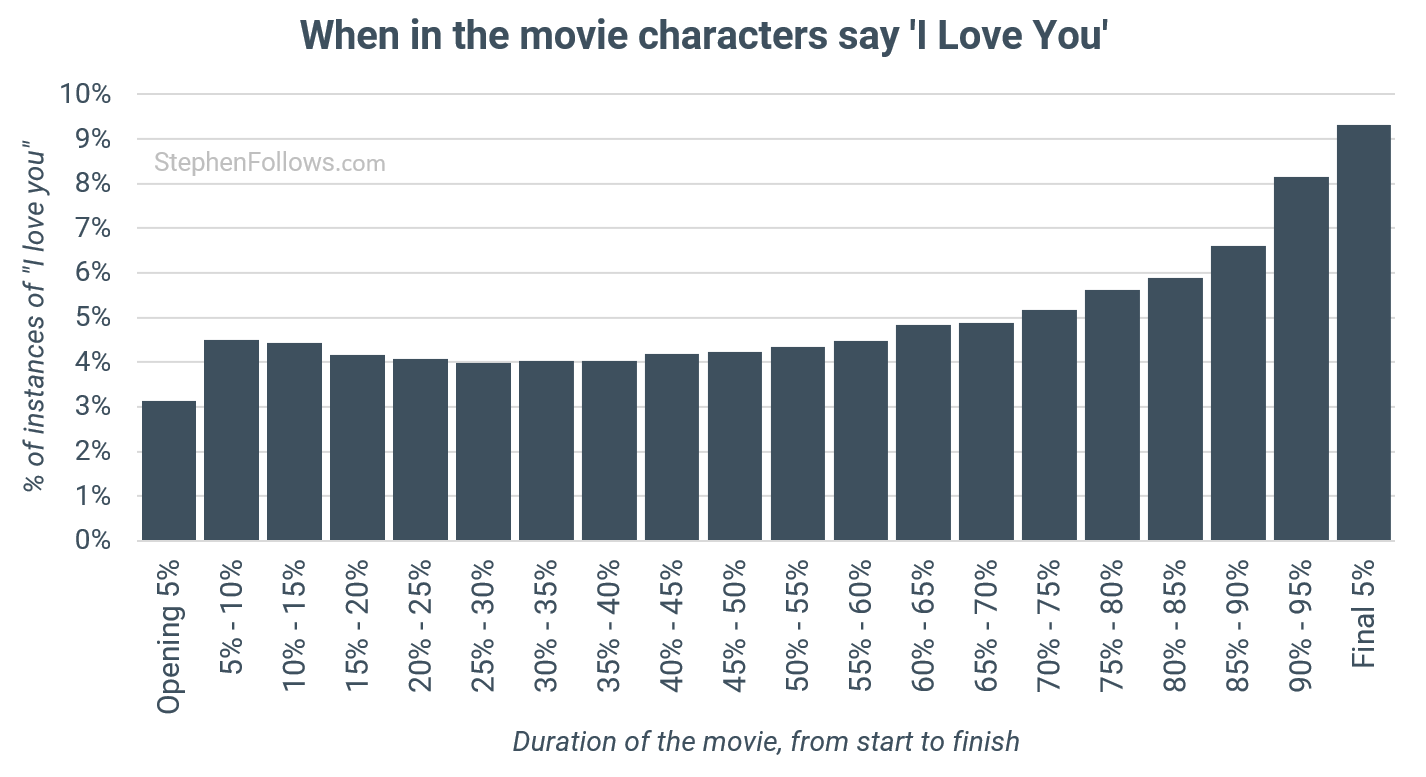
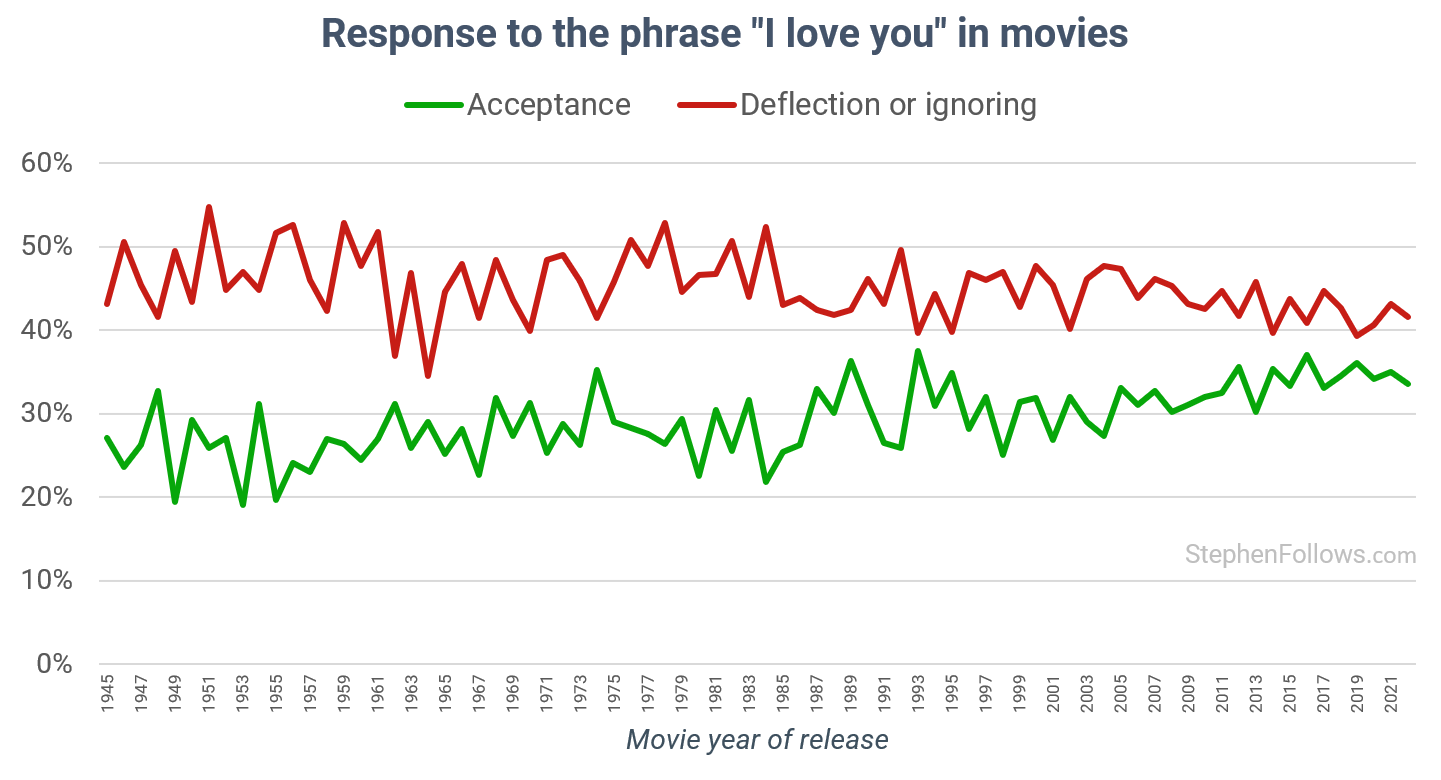
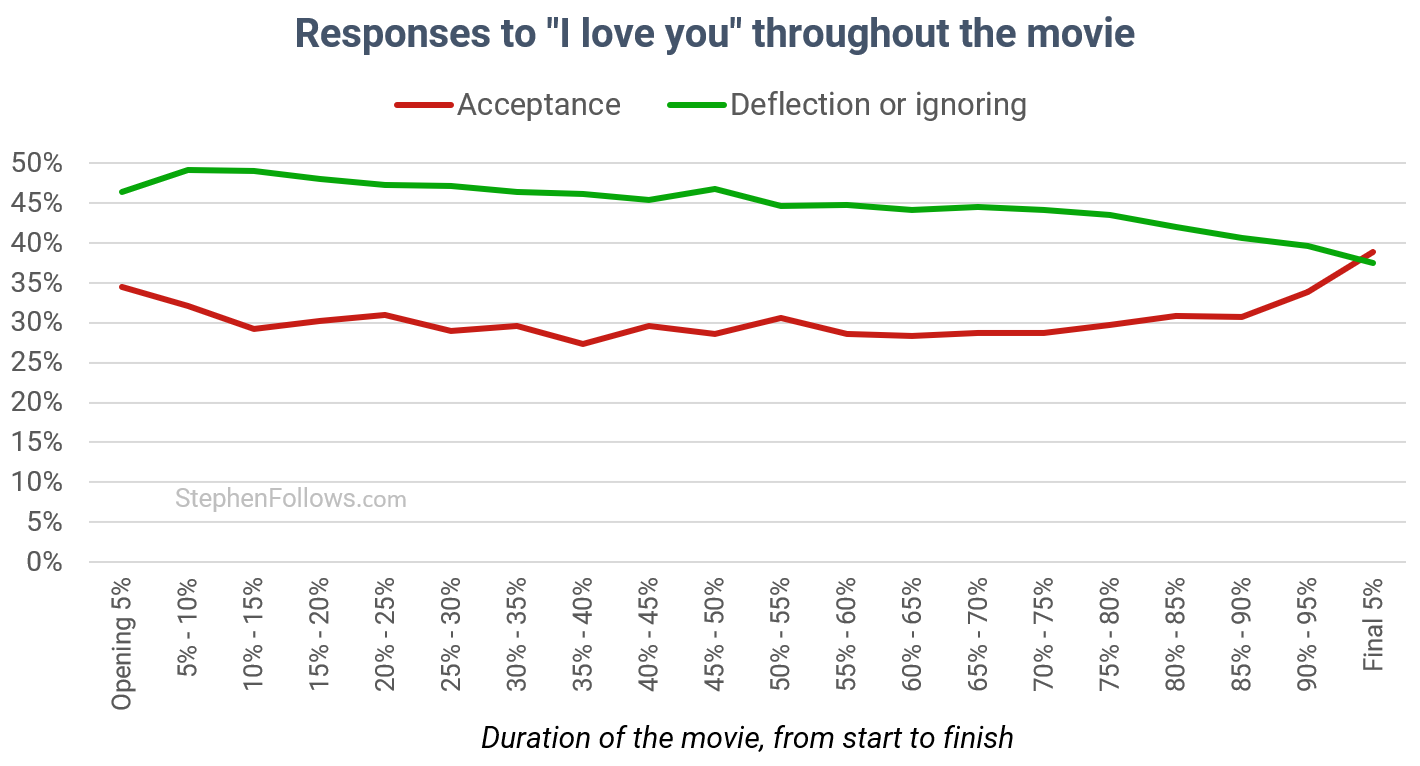
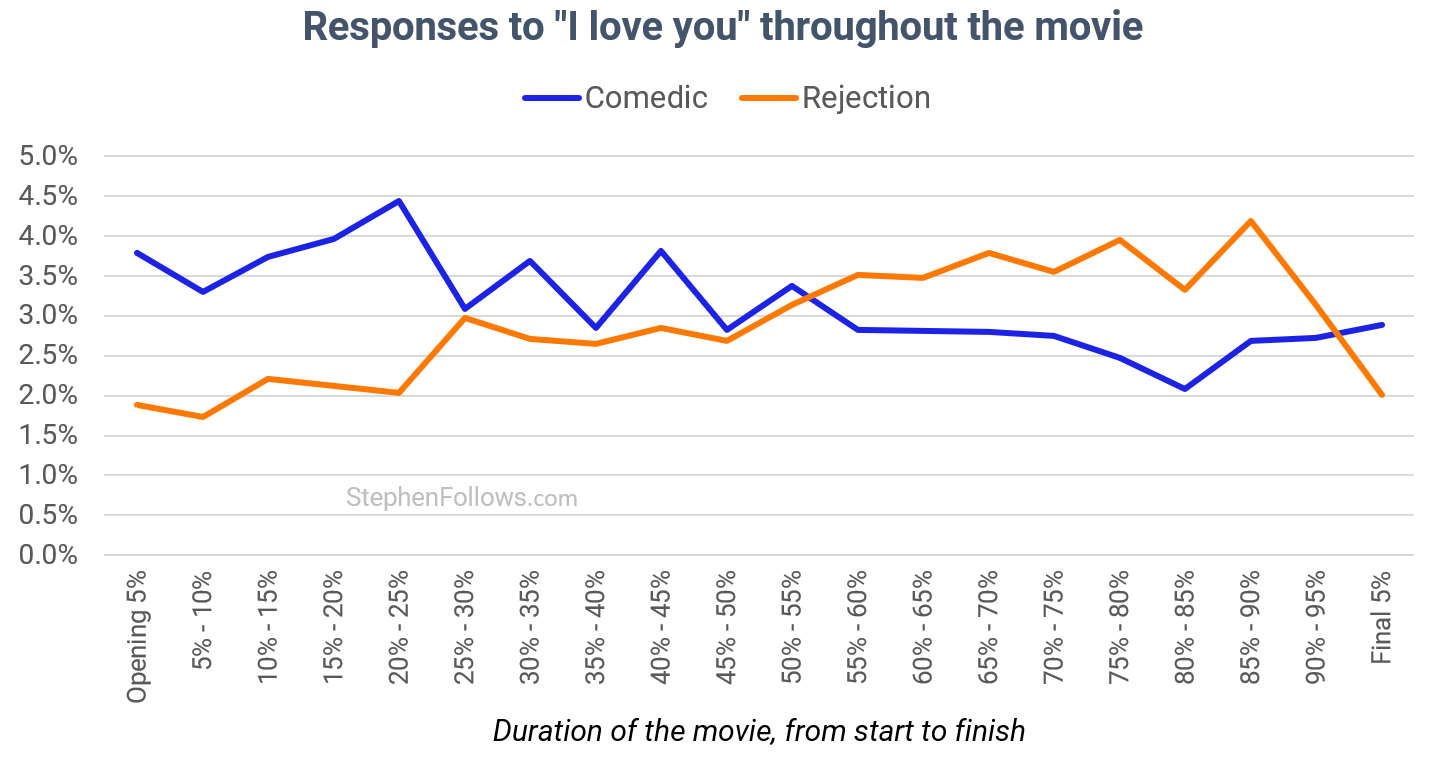
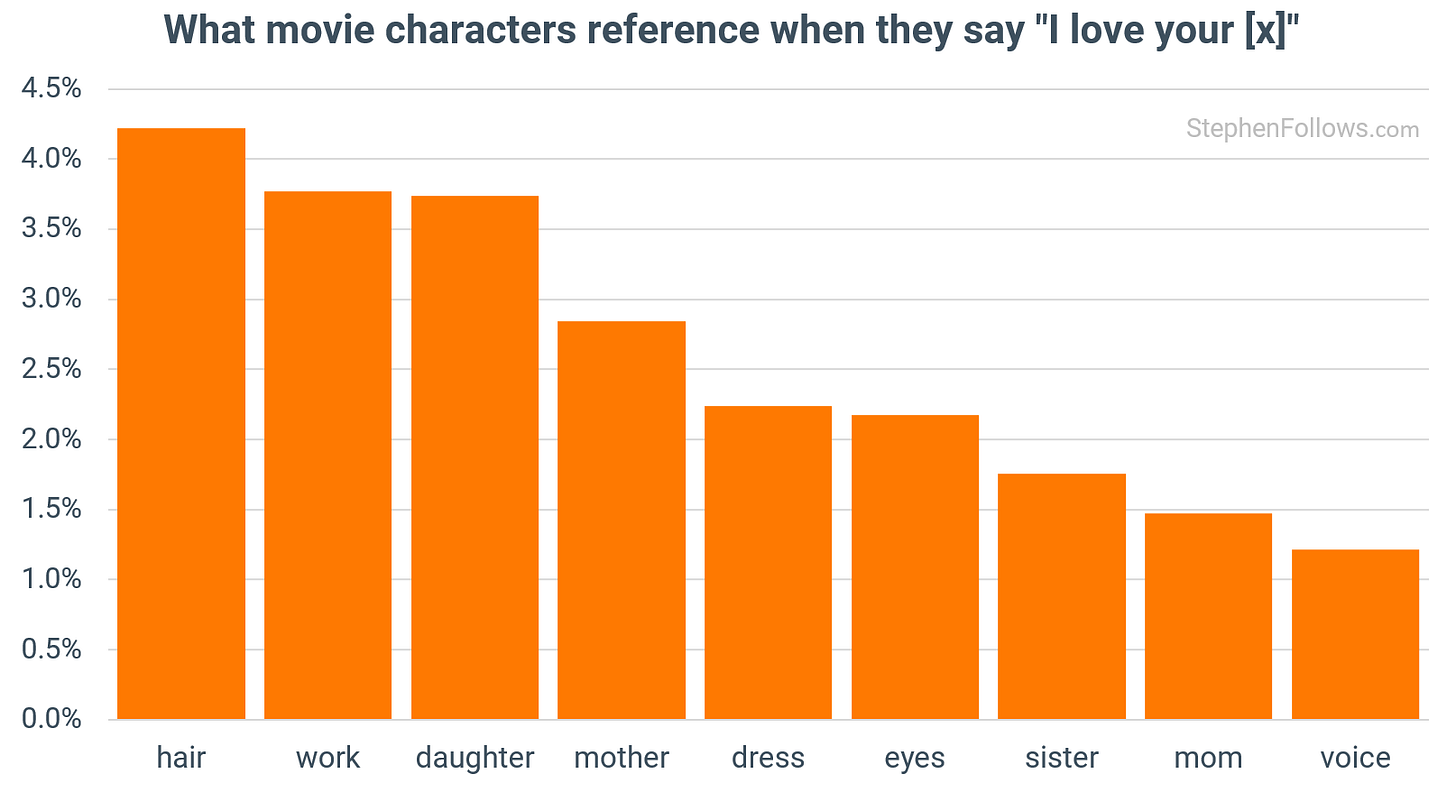
I love that and would love to see the same study for other countries.
How about France?
It'll start strong with 'I Love You, I Love You' (1968) by Alain Resnai :)
Sending love and thanks for these lovely surveys!
I like your analysis very much!